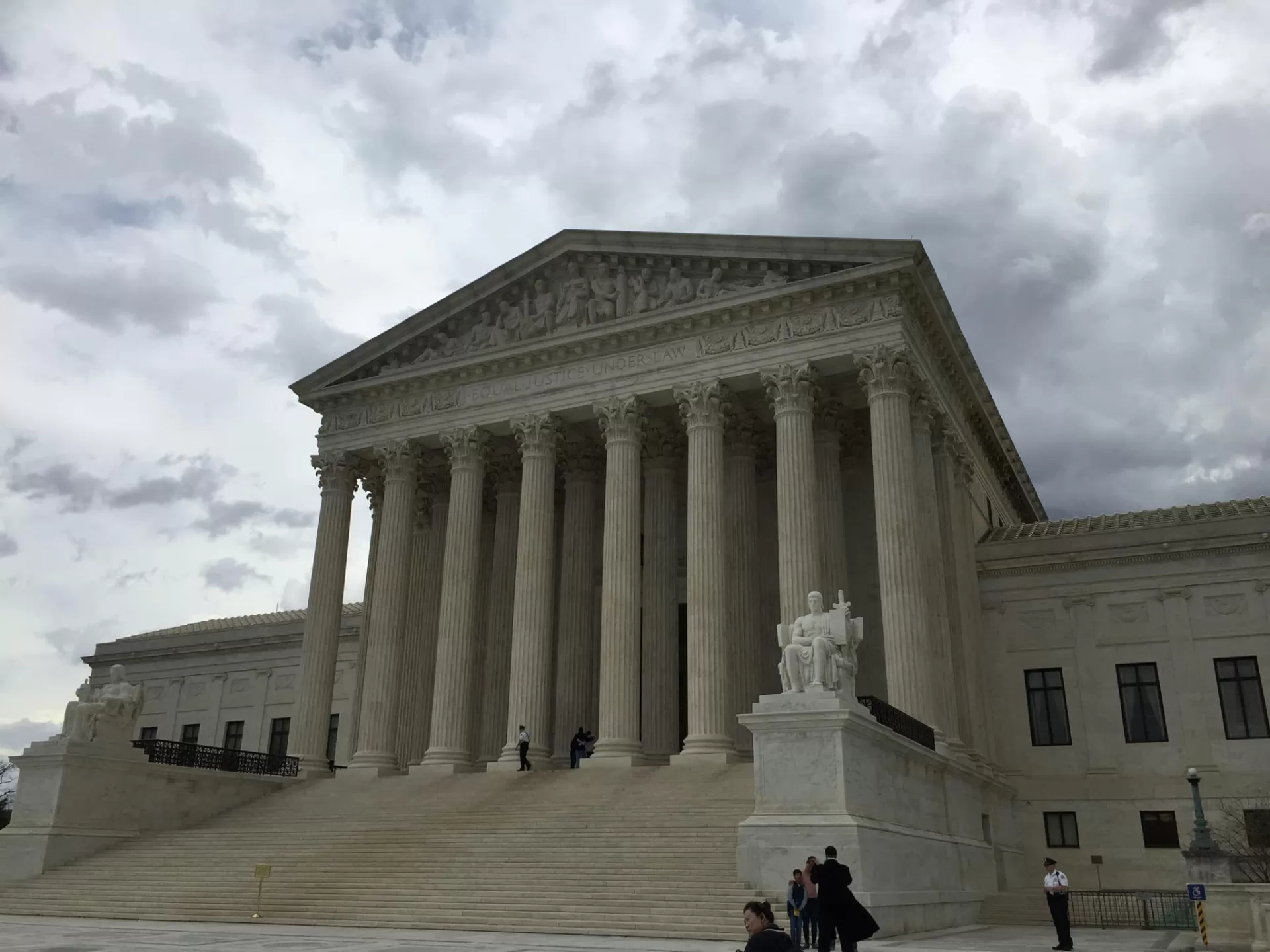Christophobic activists are trying to bully Pere Marquette Charter Township into removing an historic memorial. Yes, you guessed it, the memorial includes a cross.
Special Meeting Focuses on the Cross
The township board invites comments from the public at a special board meeting this Tuesday at 6:30 p.m. This meeting provides an opportunity for Christian people across Michigan to defend the Cross. Those who wish to comment should arrive early at the Peterson Auditorium, 508 N. Washington Ave. in Ludington, Michigan.
The Historical Significance of the Memorial
In remembrance, a private group erected the historic memorial where Pere Marquette’s died. A review of the tribute honors Marquette’s significant historical influence here in Michigan and elsewhere:
PERE JACQUES MARQUETTE – Famous Jesuit Missionary-Explorer
Born at Laon, France, June 1, 1637
Died at this site May 18, 1865
He came as a missionary to Quebec Sept. 20, 1666, learning the Indian languages and customs.
In 1668 he founded the first mission at Sault Ste. Marie, working among and Christianizing the Indians around the Straits of Mackinac.
June 17, 1673, with Louis Joliet, he discovered upper Mississippi, then the river of mystery.
They explored the Mississippi south to the mouth of the Arkansas.
Endeavoring to found a mission among the Illinois Indians, he spent the winter of 1674 & 75 on the banks of the Chicago River.
Due to impaired health, he was returning to the St. Ignace via the East shore of Lake Michigan when his condition worsened and he died at this spot.
Two years later an Indian cortege came from St Ignace, taking his remains back for burial.
Erected 1955
Pere Marquette memorial assn.

A private group gave the memorial to the State. The memorial eventally fell under the ownership of the Pere Marquette Charter Township.
The Historical Memorial does not Violate the First Amendment
The First Amendment to the United States Constitution states: “Congress shall make no law respecting an establishment of religion, or prohibiting the free exercise thereof .…” U.S. const. amend. I.
The Township Board Should Apply the Plain Meaning of the Clause
The memorial to Pere Marquette does not violate the First Amendment. First, it does not relate to the act of establishing or founding of a religion. Second, the memorial, even with it’s cross, does not subject the American citizenry to governance under a theocracy. Nor does it coerce the American citizenry, by force of law and penalty, to practice one official religion to the exclusion of all others. The memorial to Pere Marquette does not, therefore, violate the plain meaning of the First Amendment. For a more in-depth legal analysis, click here.
The Township Board Should Reject the Archaic Secular “Lemon Test”
Pere Marquette Township should reject the archaic secular “Lemon Test”. Often ignored by the Supreme Court, the test regularly receives “well-earned criticism.”[1] Perhaps this criticism is the reason why it is likely a majority on the Court no longer support it. If Lemon’s judicially manufactured doctrine existed during the Lincoln Administration, the Emancipation Proclamation would be unconstitutional. Why? Because Lincoln expressly invoked “the gracious favor of Almighty God” in the text of the proclamation.[2] For a more in-depth analysis click here.
Interestingly, contrary to the activists unsupported suppositions challenging the memorial, the memorial would likely survive a “Lemon” challenge. Why? Here the memorial’s primary purpose was secular. Look at the evidence. Begin with its true context: 1) the historical remembrance and honoring of a significant historical figure; and 2) marking the place where his life and service on this earth ended. The Catholic Church never declared this site to be sacred; The State of Michigan though, officially recognized it as an historical site.
Ideas have Consequences
Prohibiting an historical monument or public policy simply because either is informed by ancient sacred, tenets prevents thousands of years of wisdom from informing the public ethic. The idea that because God created humans in His image, all human life has dignity, ended slavery. It also advanced the rights of women around the world. Conversely, when government suppresses the free expression of religious ideals, it often results in tragic consequences. Stalin murdered over 42 million. Mao Zedong murdered over 37 million. Hitler murdered over 20 million. Atrocities worsen where those in power selectively pick which citizen’s conscience it arbitrarily censures.
A High-Stakes Battle Worth Fighting
As the attacks on the Pere Marquette memorial illustrate, we are in the midst of a high-stakes battle over the character of the American nation. Institutional integrity cannot exist without personal virtue. Good governance and civic institutional integrity rest on the virtue of those holding power within those institutions. Ideas grounded in the Cross support and nurture this virtue. It should, therefore, always be permitted within the marketplace of ideas. People of faith should not be stripped of their dignity, religious identity, and conscience in order to participate in our constitutional republic. To make sure that does not occur, we must make our voice heard Tuesday.
[1] Weisman, 505 U.S. at 644.
[2] Available at (https://www.archives.gov/exhibits/featured-documents/emancipation-proclamation/transcript.html, last visited August 2, 2017).










